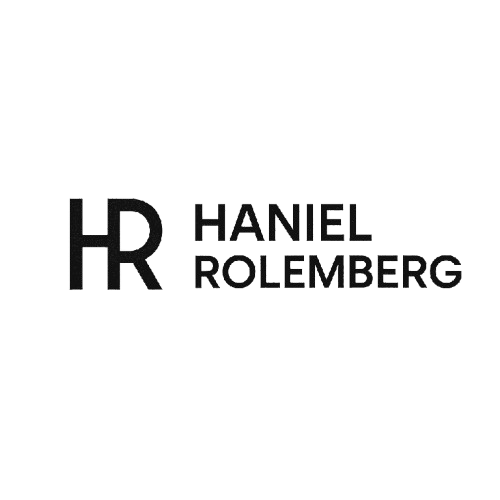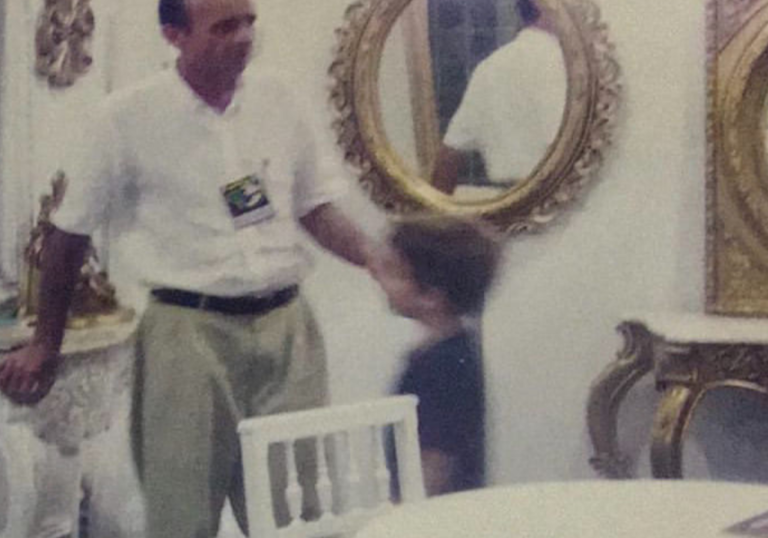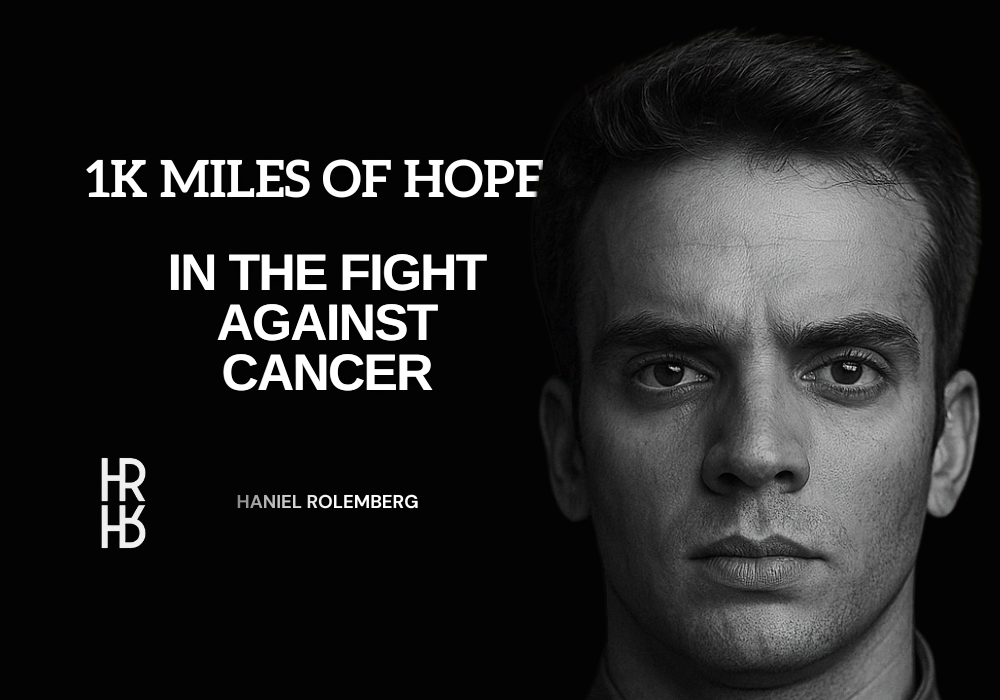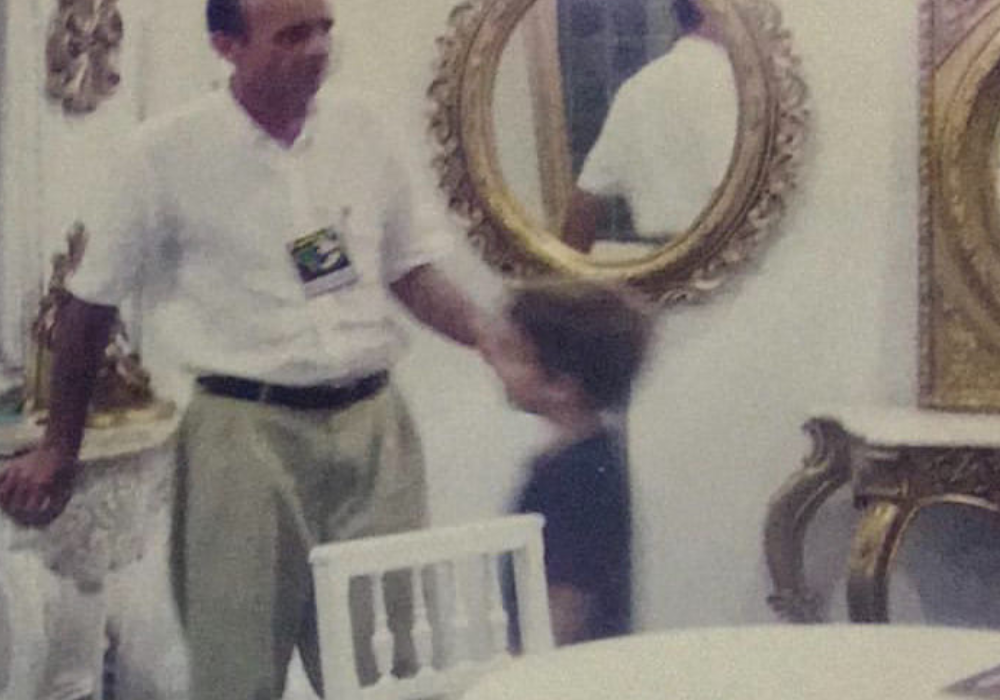Why We Need 1 Billion People to Save Our Future
By Haniel Rolemberg
The Moment Everything Changed
When I was younger, I didn’t feel strong or confident. I just didn’t see much in myself back then. It became a kind of label I gave myself — like it defined where I fit in the world.
Then in 2017, I had just turned 18, and something happened that shifted everything. I was with my dad at a doctor’s appointment — nothing unusual, just routine. But then the doctor came in, looked at the chart, and said: “It’s skin cancer.”
That moment hit hard.
Cancer had already taken people close to me. And while I’d seen it from a distance before, this time it felt personal — it was in my house, in front of me, aimed at my dad.
I felt fear. Not the kind you brush off — real fear.
But what really shook me was the realization that bad things happen to everyone under the sun. That day, it was me. And it could easily happen again. So I made a decision: next time, I needed to be prepared. I wanted to be stronger. I wanted to fight — and not freeze.
I left my job as a salesman. Started focusing more on studying and building solo projects. Little by little, I began to believe I could do something meaningful — that I could positively impact the world around me.
But I also felt that it wasn’t enough. I didn’t want to just contribute — I wanted to solve big problems. Things that affect a lot of people. Cancer, for example. Back then, I was more naïve and really believed I could fix something like that by myself. I thought it would be simpler.
Eventually, reality hit.
I saw that real change — deep, structural, large-scale change — only happens when people come together. When there’s a team. When there’s alignment. When there’s shared purpose.
And that’s when I ran into another problem: I had spent years studying alone, in isolation. I wasn’t going out, I wasn’t socializing. Over time, I had unlearned how to make friends, how to connect, how to communicate. In a way, that solitude helped — I learned a lot. I really did. But at the same time, I lost something on the social side. I didn’t know how to be part of a team, how to lead, how to relate to people.
So I stepped into a new space: volunteering.
I joined the Google Developer Group as an event organizer. Got involved with the PMI, became part of Rotaract (linked to Rotary), and participated in other communities too.
And that made all the difference.
I gained confidence. I developed communication skills. I learned how to lead and collaborate. I also found people who, like me, were restless — wanting to use their skills for something real.
That gave me the strength to keep going and eventually led me to create the Problem Solvers Foundation.
But as I built this community, I realized something sobering: the problems we’re trying to solve aren’t just getting bigger—they’re accelerating. And the window to address them is shrinking fast.
The Problems We Can’t Ignore
Through my work with various communities, I’ve witnessed firsthand how today’s challenges mirror what my family faced with cancer—they seem distant until they’re suddenly at your doorstep. Today, we face unprecedented global challenges that will define the next decade and beyond. By 2035, these problems will either be on their way to resolution, or they will have spiraled into catastrophic consequences:
Climate Crisis: A child born now is likely to suffer, on average, three to four times as many climate extreme events in their lifetime as their grandparents did. Scientists are observing changes in the Earth’s climate in every region and across the whole climate system, with many changes unprecedented in thousands of years and some already irreversible.
AI-Driven Mass Unemployment: McKinsey estimates that between 400 million and 800 million people globally could be displaced by automation by 2030. The rapid advancement of artificial intelligence is reshaping job markets faster than societies can adapt, with the AI market projected to grow from $135.93 billion in 2023 to $826.73 billion by 2030.
Global Food Crisis: Around 733 million people faced hunger in 2023, equivalent to one in eleven people globally and one in five in Africa. In 2024, more than 295 million people across 53 countries and territories experienced acute levels of hunger – an increase of 13.7 million from 2023. The world remains far off track to achieve Zero Hunger by 2030.
Health System Crisis – Antimicrobial Resistance: Antimicrobial resistance occurs when bacteria, viruses, fungi and parasites change over time and no longer respond to medicines, making infections harder to treat and increasing the risk of disease spread, severe illness and death. By 2050, drug-resistant infections could cause global economic damage on par with the 2008 financial crisis.
Mental Health Pandemic: In the first year of the COVID-19 pandemic, global prevalence of anxiety and depression increased by a massive 25%, revealing the fragility of global mental health systems.
Biodiversity Collapse: Nature is declining globally at rates unprecedented in human history, with species extinction rates accelerating. Around 1 million species are threatened with extinction, many within decades. Most global goals for conserving nature will be missed by current trajectories, undermining progress towards 80% of Sustainable Development Goals.
Demographic Crisis: Aging populations worldwide are creating unprecedented challenges for social security systems, healthcare infrastructure, and economic sustainability, while declining birth rates in developed nations threaten long-term societal stability.
Authoritarianism Rising: Global freedom has declined for the 19th consecutive year, with freedom deteriorating in 60 countries and improving in only 34 in 2024. Violence, repression of political opponents, ongoing conflicts, and the spread of authoritarian practices are accelerating attacks on democracy and civil liberties worldwide.
Economic Fragility: Global supply chains, interconnected financial systems, and climate-related disruptions are creating cascading economic risks that could trigger widespread instability.
Security and Governance Breakdown: Misinformation, cyberattacks on critical infrastructure, and the erosion of democratic institutions are undermining the foundations of stable governance worldwide.
The Cost of Inaction
If we remain passive observers rather than active problem solvers, the consequences will be severe:
- Between 400-800 million jobs could be displaced globally by automation by 2030
- 733 million people already face hunger, with acute hunger affecting 295 million across 53 countries in 2024
- Around 1 million species face extinction, with most conservation goals likely to be missed
- Drug-resistant infections could cause economic damage equivalent to the 2008 financial crisis by 2050
- Mental health crises could worsen beyond the 25% increase already seen during COVID-19
- Global freedom continues declining for the 19th consecutive year, with authoritarianism spreading
- Demographic shifts could collapse social security systems in developed nations
- Climate displacement could affect hundreds of millions, with some estimates suggesting 200 million climate migrants by 2050
- Economic interconnectedness could amplify localized crises into global catastrophes
- Democratic institutions could fragment under the weight of information warfare and social polarization
The window for action is closing rapidly. We have until 2035 to fundamentally change our trajectory, or we risk leaving an uninhabitable planet for future generations.
The Problem Solvers Solution
That’s why I’m launching the Problem Solvers Foundation with an ambitious goal: By 2035, unite 1 billion people in coordinated action to become protagonists in solving the problems that define humanity’s future.
This isn’t just a number—it’s strategic. One billion people represents approximately 12% of the global population by 2035. Having 12% of people actively engaged as problem solvers in every country creates a critical mass capable of driving systemic change.
But here’s what I learned from my years in isolation versus my time in communities: numbers alone don’t create impact—connections do.
The Power of Network Effects
My experience taught me that working alone, no matter how dedicated, has limits. But when people connect around shared purpose, something exponential happens.
When we connect 1 billion problem solvers, we’re not just adding individual contributors—we’re creating something unprecedented. Using the network connection formula n×(n-1)/2, one billion connected people generate approximately 500 billion potential connections.
These connections represent:
- Knowledge Transfer: A farmer in Kenya can learn from agricultural innovators in Israel
- Resource Sharing: Tech entrepreneurs in Silicon Valley can fund solutions developed in Nigeria
- Skill Matching: A climate scientist in Germany can collaborate with indigenous knowledge keepers in the Amazon
- Rapid Response: When crisis hits anywhere, relevant experts and resources can be mobilized instantly
- Innovation Acceleration: Problems get solved faster when the right minds connect at the right moment
Each new person joining doesn’t just add their individual capacity—they multiply the network’s collective intelligence exponentially.
This is the opposite of the isolation I once experienced. Instead of brilliant people working alone, we create a system where every connection amplifies everyone’s impact.
Building Tomorrow, Together
The journey from that fearful moment in the doctor’s office to this vision of global collaboration taught me something fundamental: the problems we face are interconnected and complex, just like the solutions we need. They require coordinated, intelligent solutions implemented at scale. They need people who understand that we are all problem solvers—we just need to be connected, organized, and empowered to act.
The Problem Solvers Foundation is building a global network of individuals who refuse to accept the status quo. People who see problems as opportunities. People who believe that together, we can build the future we want to live in.
We’re creating platforms for collaboration, systems for rapid solution deployment, and communities that turn individual passion into collective impact. We’re connecting the farmer worried about drought with the engineer developing water-efficient irrigation. We’re linking the teacher in an underserved community with the programmer building educational AI. We’re bringing together the young activist and the experienced executive to scale solutions that work.
Join the Movement
When I felt powerless in that hospital room, I never imagined that feeling could lead to something this big. But that’s exactly what happened—because problems, no matter how overwhelming they seem, contain the seeds of their own solutions.
This is bigger than any one person, organization, or nation. This is about recognizing that our individual fates are interconnected and that our collective potential is unlimited.
The future isn’t something that happens to us—it’s something we build together.
Ready to become part of the solution?
Join thousands of problem solvers who are already working to reshape our world. Whether you’re a student with big ideas, a professional with specialized skills, or someone who simply refuses to accept that things can’t get better—there’s a place for you in this movement.
Join Problem Solvers Foundation →
Because at the end of the day, we are all problem solvers. We just need to act like it.
The choice is ours. The time is now. The future is what we make it.
Together, we solve.
